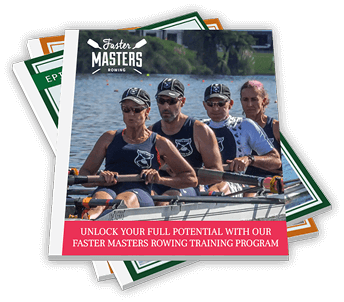Coaching Adult Beginners in the Art of Rowing
Beginning to row is unlike any other sport - before you try, nobody can “just row”, especially in a fine racing boat. When I teach beginners, I remind them that the most famous Olympic rowers were EXACTLY like them when they began in the sport.
Why is rowing so different?
The sequence of body movements in the rowing and sculling stroke is unlike anything else we do in our normal lives. Where else would you straighten your legs, then swing your back and bend your arms in that order?
As rowing coaches, you know this and understand how teaching rowing requires use of drills and exercises which help the athlete to learn to fire their muscles in the correct order.
There are two types of rowing drill
- Exaggeration drills - where we work to increase the effect of part of the stroke cycle
- Isolation drills - where we work on one part of the stroke cycle
Both are really useful as methods for teaching athletes how to make the correct movements.
We also know just how long it can take for an adult beginner to become proficient in the basics of rowing and sculling. Unlike youth rowers who frequently practice four or more times a week, an adult may only do two classes each week. And so it takes more elapsed time for them to have the same number of lessons. Plus adults learn differently from young people - our brains are less plastic, we need to frame our learning differently and many of us are out of the habit of learning new things.
Getting your athletes skillful
As you coach your students, you can see that some acquire skill faster than others and you will also notice that some athletes plateau with their skills for a while before advancing again. I find this normal, but I don’t know the reason for it.
When teaching adults there are challenges which come from you, the coach, as well as those related to the age of your students.
Why do you want to coach masters? What’s your motivation and what do you want to get out of this coaching practice?
Secondly, how do you feel about coaching people who may be older than yourself? When we study (for school, life and sport) frequently our teachers are older than us. We have a mental image of a teacher being old. Having this age difference flipped around affects how we approach coaching rowing to adult masters.
8 hallmarks of adult motivation
Faster Masters has deep experience working with adult athletes. We have also surveyed masters rowers to find out why they choose to row.
When placed in a learning situation, there are eight key fulfilments which adults need in order to get maximum benefit from your teaching.
- A need to achieve
- A need to please
- A need to belong
- A need for autonomy
- A need for variety
- A need for structure
- A need to care
- A need for control
These are very different from youth and junior rowers and, again, present a challenge for coaches who are working with this age group.
Now you understand these eight needs, can you adjust your coaching practice to incorporate more of them? And notice how your students react when you change how you teach.
The first module in the Coaching Masters Certification covers the Philosophy of coaching masters including lessons on motivation for choosing rowing, goal-setting, the four-stage learning method and self-discovery.
In summary: The coaching focus learning points from this article are....
- How to manage physical compromises
- Understand how adults learn
- Adult motivation and de-motivating behaviors

